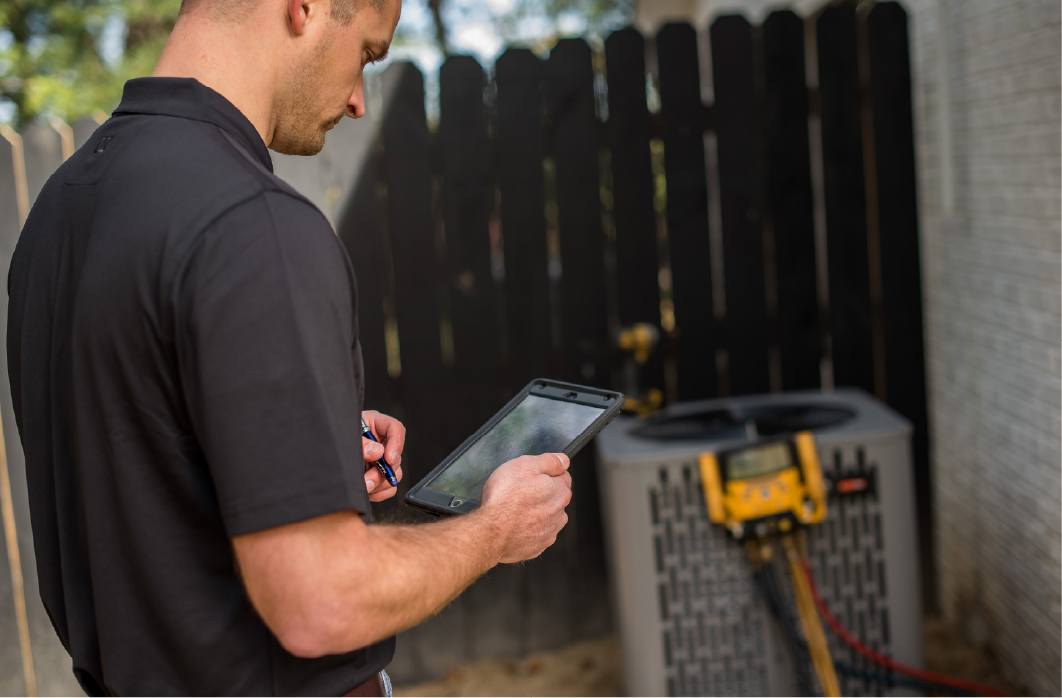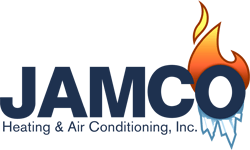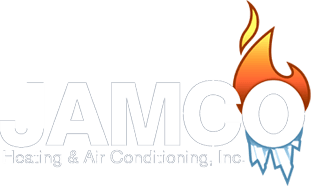How Often Should I Replace My Air Filters in My Home?

Your HVAC system provides warm and cold air to stay comfortable in the extreme temperatures of New Jersey and Pennsylvania. Your mighty heating and cooling machines need extra care on a routine basis to continue enjoying this comfort. Throughout the four seasons of each year, there are some things you and your professional HVAC technician can do to benefit your heater and air conditioner.
Importance of Air Filters
Air filters in your HVAC system help block dust, dirt, and allergens from the air that blows out of your vents. These filters trap contaminants, keeping them in the filter and out of your HVAC system and indoor breathing air.
Changing Air Filters
Change the air filters in your heating and cooling system at least once every three months. Some filters may need to be changed more often, depending on their size and quality. If you live in a rural or extremely dusty area, you may need to change your filters as often as once a month. Changing the filters is a routine maintenance task you can take on yourself. Most filters slide in and out of the machine easily.
Air filters keep dust and allergens out of your ducts and from blowing out of your vents, so changing them every three months offers better indoor air quality and helps you keep your home cleaner. With a clogged filter, you may find the surfaces in your home dustier than with a new, clean filter. The filters also keep contaminants out of your HVAC unit, helping avoid dust and dirt buildup that causes your machine to work harder.
Maintenance Handled by the Professionals
Beyond the simple task of changing the air filters regularly, there are other steps of the annual maintenance plan that you’ll need a professional HVAC technician to handle. Trained technicians understand the inner workings of your heating and cooling units and know what to look for and how to make repairs. Because of the complexity of your heater and air conditioner, you should never attempt maintenance and repairs without proper training.
Inspect the System
Your technician will first look over the parts and components of your heating and cooling units. The technician looks for signs of damage, faulty parts, and unsafe conditions. They will run your HVAC system to check for strange smells or odd noises. You should not smell anything from the unit or vents while your HVAC system is running, nor should you hear loud noises such as banging and clanging. If unusual noises or smells are detected, the technician will investigate further.
Inspect Electrical and Gas Connections
Your HVAC system requires electricity and gas to operate. The technician will inspect the connections for utilities, ensuring safe and secure function. Frayed wires, damaged cords, and loose connections can create dangerous conditions and pose a risk of shock, electrocution, electrical fire, and explosion.
Check Refrigerant Levels
Your AC relies on refrigerant to cool the air that blows through your vents. The technician will check the refrigerant level in your air conditioner and add more if needed. A low refrigerant level may signify a leak, which should be checked and repaired. Refrigerant can be harmful if not handled properly, so it should only be dealt with by a professional HVAC technician.
Test Safety Controls
Your HVAC system has safety controls that stop it from running under improper conditions. Your technician will test these safety controls. If any safety mechanisms fail, you’ll need repairs before using your system again.
Inspect Ductwork
If you have problems with hot and cold spots or insufficient heating and cooling, ductwork may be to blame. Your technician can inspect your ducts for leaks, gaps, or clogs. You should schedule professional duct cleaning at least once every three to five years, but you may need it sooner if you have obstructions in the ductwork.
Benefits of Maintenance
Now that you understand what is involved in annual preventative inspection and maintenance, it’s time to learn why these are critical home services. Keeping up with your HVAC system has numerous benefits, making the professional service worth every penny.
Greater Energy Efficiency
Your HVAC system works more efficiently when clean and free from worn parts. Damaged components cause your units to work harder than designed, causing the system to consume more energy to provide the same comfort level.
Better Indoor Air Quality
Cleaning your units and changing the air filters help decrease the dust and allergens in your home. With a clean system, you’ll breathe easier and sleep better. This better indoor air quality is particularly beneficial for those with respiratory diseases such as asthma and COPD.
Save Money
Greater energy efficiency means lower energy consumption, which leads to lower utility bills. A lower chance of unexpected breakdowns saves you money on emergency repairs. Extending the lifespan of your heating and cooling units allows you to get more time from your machines before replacing them. All of these benefits save you money and make the small cost of annual maintenance more than worth the bill.
Annual maintenance for your HVAC system rewards you in many ways. Count on the pros at JAMCO Heating & Air Conditioning for detailed, comprehensive heating and cooling maintenance in South Jersey and southeastern Pennsylvania. Your comfort counts on us – ask us about our maintenance plans!

